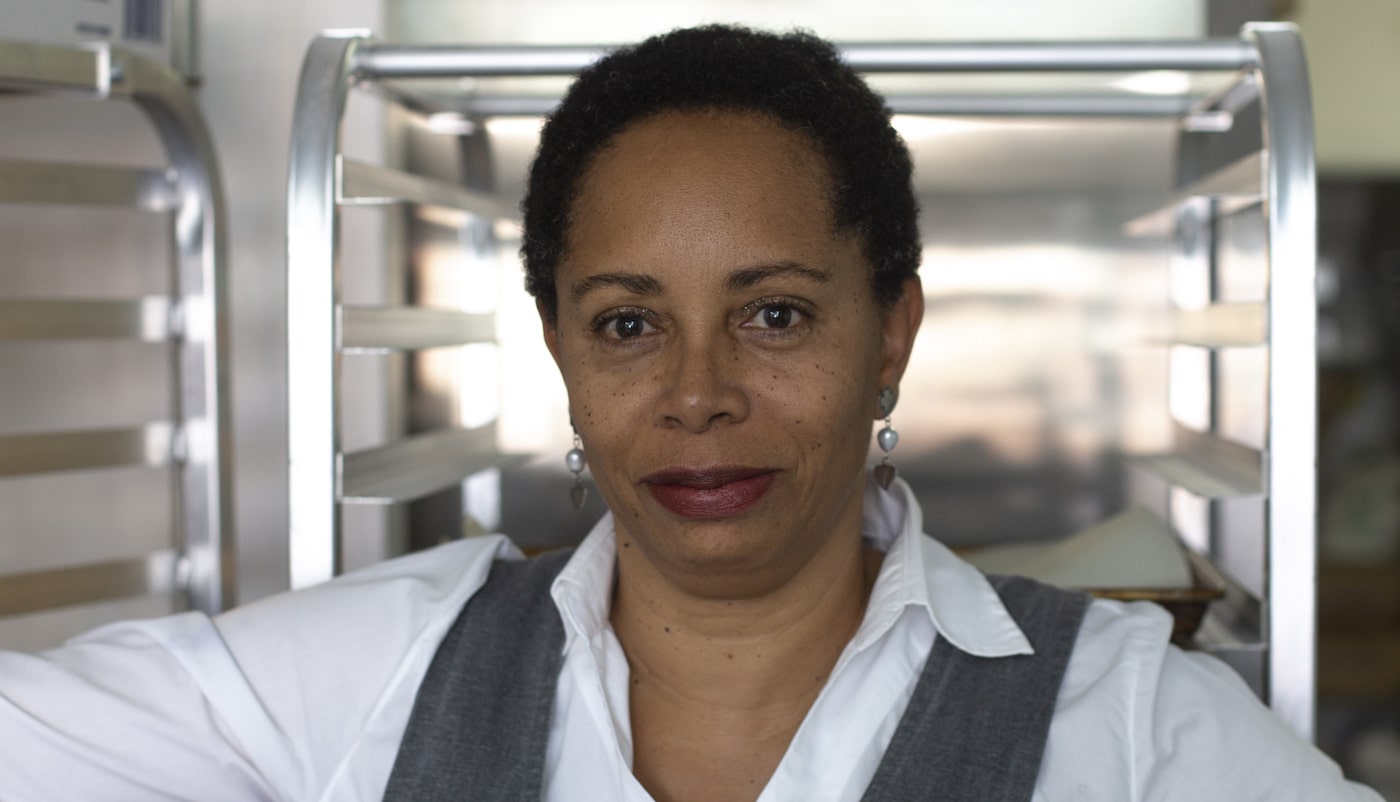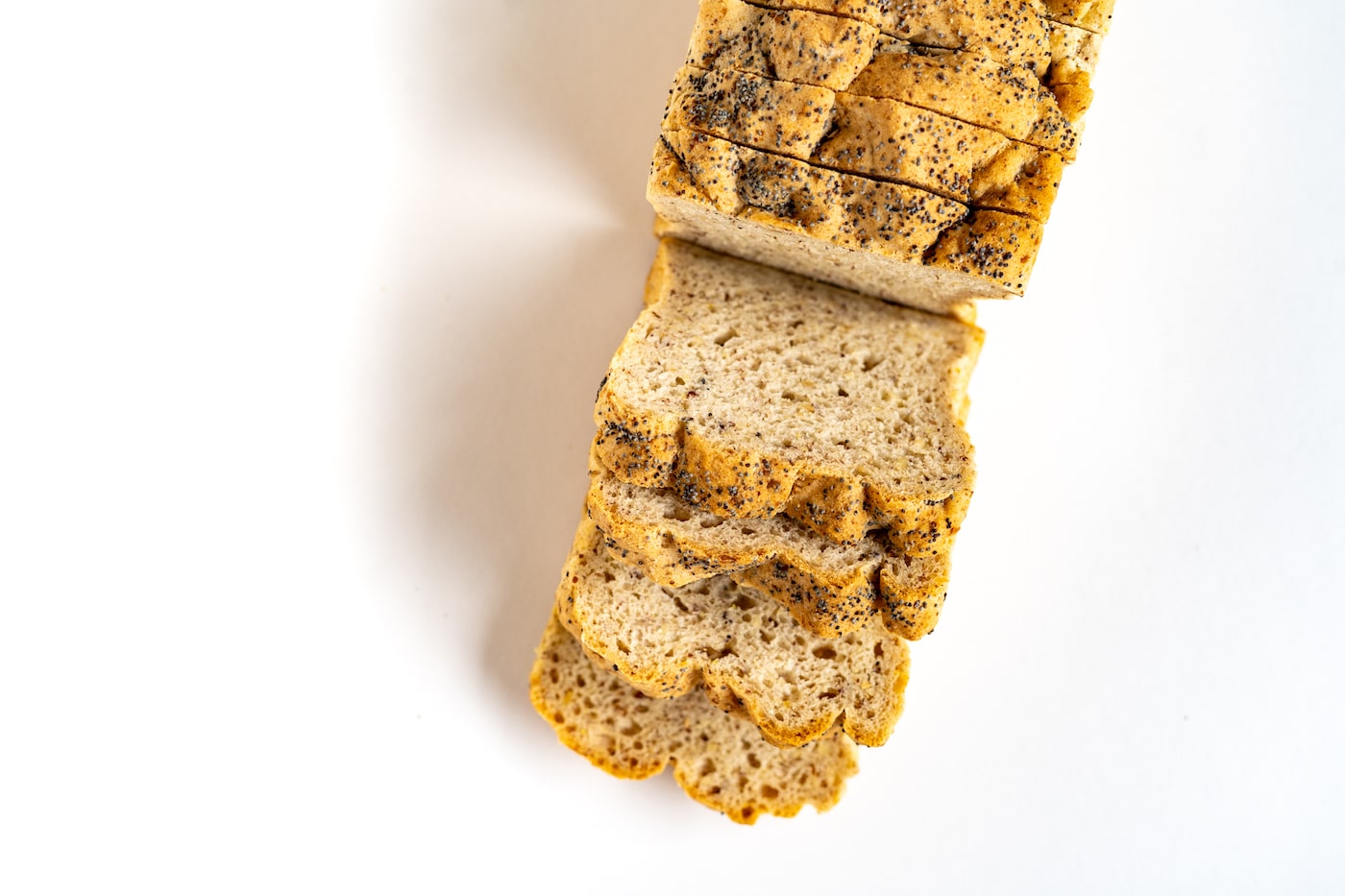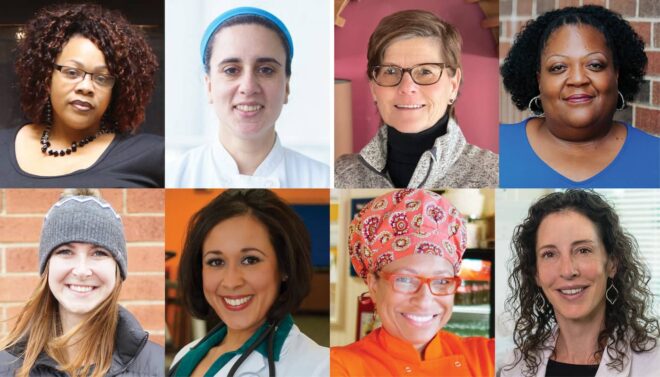Revolution Bakery
Editorial Team
7 min read
What if you could have a flaky, buttery, delicious croissant…without the gluten? Meet Dionne Christian, owner of Revolution Bakery in Santa Fe, who rebelled against the idea that you had to give something up when you gave up wheat. Dionne talks about the alchemy of baking the perfect focaccia while still meeting the needs of a growing community of health-conscious fans, and how Clover helped her effortlessly expand her business to a second location in Albuquerque.
Clover: You have quite a following of avid fans. Where did you learn gluten-free baking?
Dionne Christian: I really started perfecting my gluten-free foods before I started Revolution Bakery. I owned another restaurant in Santa Fe called the Tea House, which I sold in 2010. I wanted to introduce my customers to eating products without wheat or gluten, and I started experimenting. I wanted to go to school, but I couldn’t find a gluten-free baking school anywhere in the United States or Europe.
There was this moment where I decided, “OK, I’m going to teach myself how to do this. I’m a gluten-free baker. I’m a gluten-free dough developer. I can do this.” So I did it, I am self taught. I created all of my flour blends and I ended up with a restaurant bakery, though now I just create baked goods like bread and pastries, not meals.
Clover: Most people don’t decide to cook gluten-free just for fun. Are you celiac, or just really health-conscious?
Christian: I don’t have celiac disease, but I’m completely gluten-free. Inside of me somewhere is an alchemist. And I love blending things. So it’s just another thing that I blend. You know, at the teahouse I was blending teas and blending chais. And now I’m blending flours to get specialty blends using my gluten-free grains.
I went gluten-free to get rid of brain fog, to have that clarity, and to get rid of belly fat. Everyone thinks you go off gluten and you magically get skinny. But you have to do other things, too. You have to be totally health conscious to make it work. It’s just not magic. Becoming gluten-free was a part of a lifestyle change for me. I try to practice it on a daily basis and it’s working. You can’t really tell if it will work for you until you try it and commit to it for a while.
Clover: What’s your motivation for having a completely gluten-free establishment?
Christian: I love serving people, and there are a lot of people out there that have been diagnosed with celiac or they just want an alternative to wheat. It’s something that I just wanted to do. I feel the drive inside of myself to give people a specialty product they’re not able to get anyplace else.
It’s hard going gluten-free. It’s difficult when you go out to restaurants, for example, to find really delicious foods. There’s a lot of restaurants that say, “Oh, we have gluten-free products”. I wasn’t interested in that. I wanted the integrity there to say, “Yeah, we’re 100 percent gluten-free”– a dedicated gluten-free kitchen. I want to make sure that everyone else has the opportunity to get the good, quality food that I am eating.
Clover: Do you have people who come to you because you’re a specialty bakery? Or do they just come for the good food?
Christian: I didn’t have to do too much courting because I had a reputation in town. I had the followers that came from my old restaurant who were either gluten-free, or wanted to be gluten-free. A lot of people are changing their eating habits and they’re moving towards gluten-free. But I catch a lot of people who are not gluten-free who are just looking for a bakery.

Clover: How do you know when a new recipe is ready to serve to the public?
Christian: I’ll test the flour mix and turn it into a batter or dough. When it’s fully baked, I make sure that the “mouth-feel” is there—that it has the consistency of the thing I’m trying to mimic. If I make focaccia, for instance, I want it to look like focaccia. I want it to taste like focaccia. I’ve seen many gluten-free products where they kind of resemble what they’re trying to knock off, but not really. I think a lot of places feel people are going to eat it because it’s gluten-free and the only gluten-free option on the menu. I want it to look, feel, and taste like it. So when I have those three things in place, it’s ready.
And that flavor and consistency has to last. If someone takes a croissant home, they may want to have it the next morning. If it’s completely dried out or doesn’t have the same consistency, I don’t want them to have it. I’m not interested in them having something that’s going to totally break down the next day, even though you’re supposed to eat croissants the morning that you purchased them. We’re not Europeans; we don’t always eat that way.
Clover: Tell us a little bit about how you use Clover? Why did you choose it?
Christian: I had a few really horrible POS systems at my other restaurant, and they were really hard for me to use. I would have to call in an IT person to come and help me create the simplest template. Clover is really easy. I haven’t really had to call technical support for anything, and I’ve been using Clover for six or seven years. I can’t even imagine using another POS system after using the Clover.
I love the ergonomics of the hardware. I love that I have a platform on my phone where I can look in and see what’s going on in my bakery when I’m not around. There are so many elements to it, it works for me, and it works with ease. That’s why I use Clover.
I have a Clover Station, and I use a lot of apps which have helped me adapt and grow. I use Davo for sales tax. Homebase and Gift Cards are the ones that I use religiously, though. Homebase I can pull up on my phone and see when my staff checks in. Gift Cards are really important. Visitors buy them during the holidays as gifts for their family in town. When Covid hit, everybody was buying gift cards to support me as a local business. I was grateful that I had the opportunity to offer physical gift cards, which set me apart from other businesses. I have little tiny gift boxes for the gift cards, too. People are really excited that it’s one-stop shopping. You can buy your baked goods and grab a gift card!
Clover: How did the pandemic affect your business?
Christian: I had to regroup fast and adapt. I decided to have everyone place their orders online and come in for pickups on Friday. I had to set up my website to be able to do that.
I have a drive-through and contractors are building out a really cool pick-up window in the front. Customers aren’t able to come into the store to pick things out, so I communicate with them on a regular basis, making sure that they are happy with my products.
The model works so well, and the real estate in Albuquerque became reasonable. So I found a place and am expanding into a second location.
Clover: What advice do you have for other small business owners right now?
Christian: Harness your adaptability. Make sure you wake up in the morning and recognize that you might have to change some things on a dime. Don’t hesitate. Really, act fast, because things are always moving. New models are popping up every moment in front of us and we have to be able to take advantage of them. Be adaptable on a daily basis.
Read more of our Meet the Merchant stories for real-life stories of small businesses in action all over the country. Want to be featured in this series? Fill out our questionnaire, and if we can include you in a future interview cycle, we’ll send you an invitation!
Related Posts
Celebrating women-owned businesses
How three merchants use Clover Customer Engagement to boost business
Popular Topics
Stay In Touch
Sign up and learn more about Clover.
Thank you for your subscription!
Recent Stories
- Jewelry store supplies and equipment needed for opening day
- How small businesses can use employee discounts to retain staff
- Tips and tricks for opening an outdoor pop-up restaurant
Please share your contact information
to access our premium content.
Thank you for sharing your contact information.
Download Now





